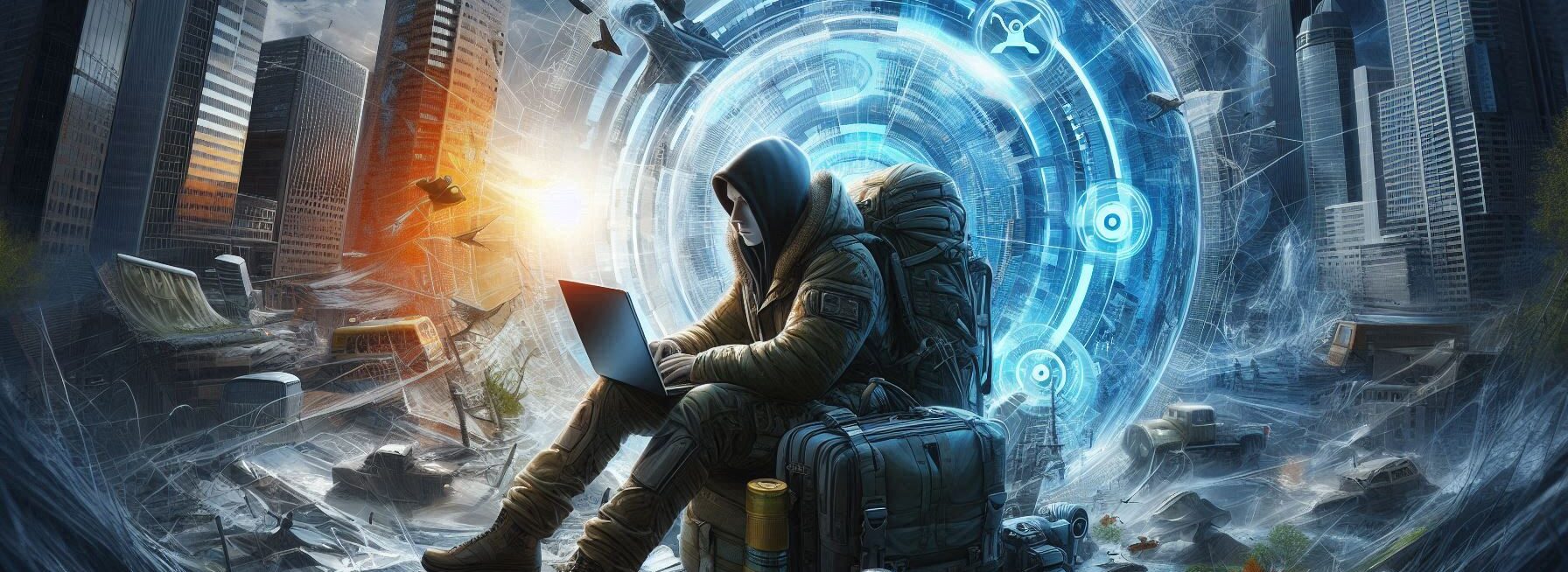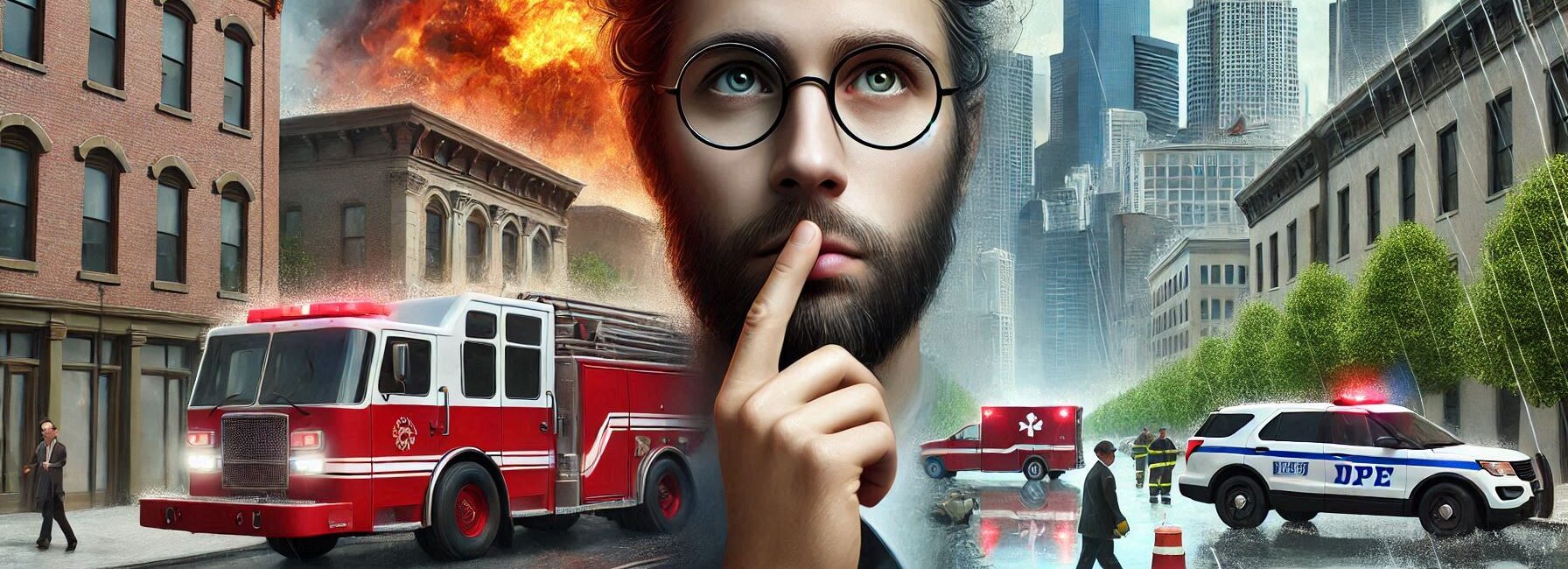Last Updated on November 1, 2025 by Kevin Collier

Top Takeaways and Key Concepts
Acknowledge and express your emotions; grief is a natural response to loss.
Maintain routines to provide a sense of normalcy and stability.
Seek support from community groups, counselors, or support networks.
Engage in self-care practices like exercise, nutrition, and rest.
Consider creating memorials or rituals to honor lost loved ones.
Think about how it would feel to wake up and everything was changed. Your house is gone, and so is that tree you like to climb. It was uprooted, like if it had given up. And that sad, melting grill? Ugh. It's like nature had a party and you weren't even invited.
Do you feel lost? That's very natural. Grief is a hard thing to deal with. It might make you feel heavy, especially after something like this. It's fine to feel a lot of different things. You might be angry. You might be sad. You might simply want to consume all the ice cream.
Please Note: This post may contain affiliate links. If you click one of them, we may receive a commission at no extra cost to you. As an Amazon Associate, I earn from qualifying purchases.
It's hard to go through this mess, but you can do it. Take a minute. Take a breath. Let's go over some easy steps.
Start by telling someone you trust your stories. It helps to talk. It could be your best friend or a member of your family. Talking about how you feel can help you feel better. Even when things are awful, you might remember the good moments.
Think about little things you can do every day to make yourself feel better. You may plant a flower or create a picture of the tree you miss so much. Things that are small are important. They are like little boats that save you from the storm.
Getting help is very important. Groups might be helpful. There are other people who understand. They are in the same boat as you, feeling the waves. Even on the worst days, you're not alone.
Grief isn't just crying into wet marshmallows. It can mean learning how to honor what you've lost. Do you remember that tree? You could plant a new one. It might mean hope. Just like you, it's growing back.
Things will change, but you're strong. You can keep going, one small step at a time. It's important to take care of yourself and ask for help when you need it. So, let's get cozy with a blanket and a cup of tea and find happiness again.
Contents of This Page
*** Shop for Survival Gear - Tools - Kits ***
Survival Gear - Bags and Backpacks - Knives - Boots/Footwear - Communication
Outdoor Cooking - Gloves - Hydration - Dry Boxes - Water Filtration Systems
Tents - Sleeping Bags - First Aid Kits - Multi-Tools - Flashlights - Fire Starters
Navigation - Survival Food - Night Vision - Headlamps - Stun Guns - Binoculars
Acknowledge Your Feelings
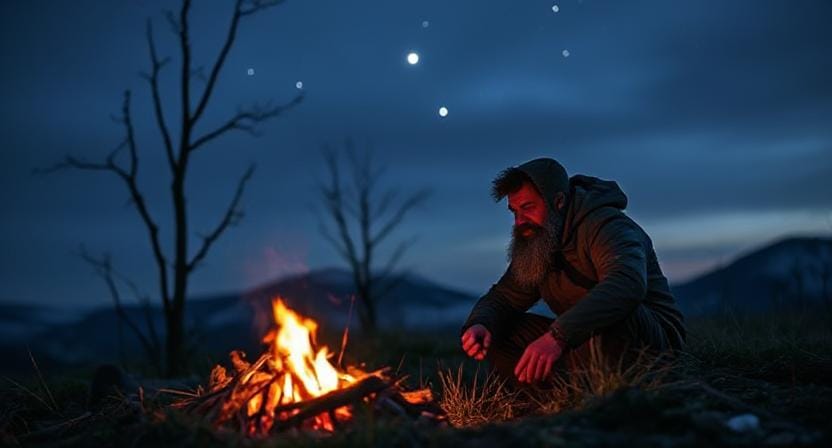
Let's start by talking about how we feel. It's important to recognize these feelings, whether they be sadness, rage, confusion, or all three at once. Like uninvited guests who show up at your house, you need to deal with them even though you don't want to.
You wouldn't ignore someone on your porch asking for snacks, but you could if they were particularly bothersome.
Let yourself feel what you're feeling. If you still have some friends, write it down in a journal or share it with them over s'mores.
After a major storm knocked down the trees in our area, I found comfort in sketching pictures of them and telling my kids stories about them. That little thing helped us deal with our loss together.
Make Connections With Others
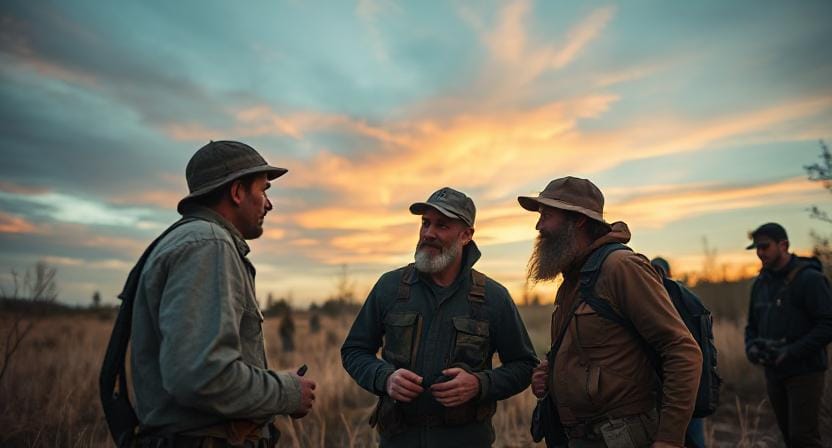
Humans are social animals, and we do best when we are connected to others. After a disaster, talking to other people might help you feel better and get through it. Sharing experiences with family members who have also lost someone or neighbors who know how much that old oak tree meant to everyone helps keep memories alive.
Think about starting support groups where people may get together and talk about what they've been through. following our local park was renovated following the storm, my neighborhood started an outdoor potluck, which is interesting.
We met under the new trees, which weren't nearly as grand, but we shared food, laughing, and tears. Nothing heals like warm brownies.
Make New Traditions
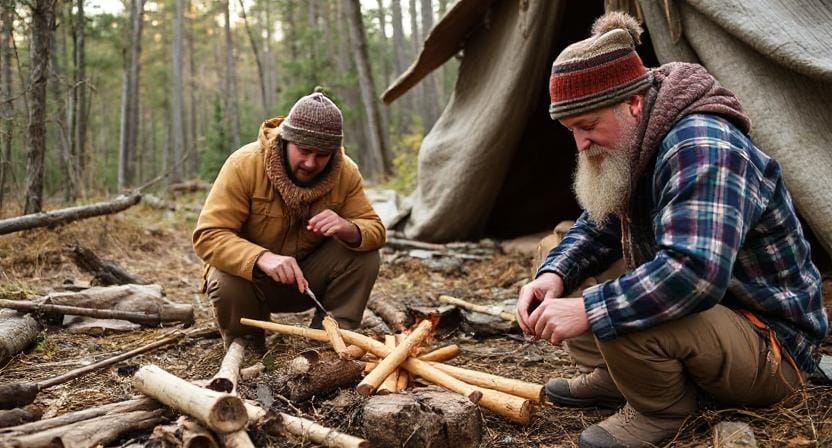
Speaking of food (my favorite topic), making new traditions might help you move on while also honoring what you've lost. You might have had a BBQ under that big maple tree every summer solstice. Now might be the perfect moment to start a new tradition!
What if you planted new flowers or trees to remember what you lost? Every year, when they blossom or grow taller than your neighbor's fence, you'll be reminded of both strength and beauty in the midst of your grief.
To be fair, I did this after a freak hailstorm killed some of my garden plants, and to be honest? It was like getting small hugs from Mother Nature herself to see new flowers grow.
If You Need It, Get Professional Help
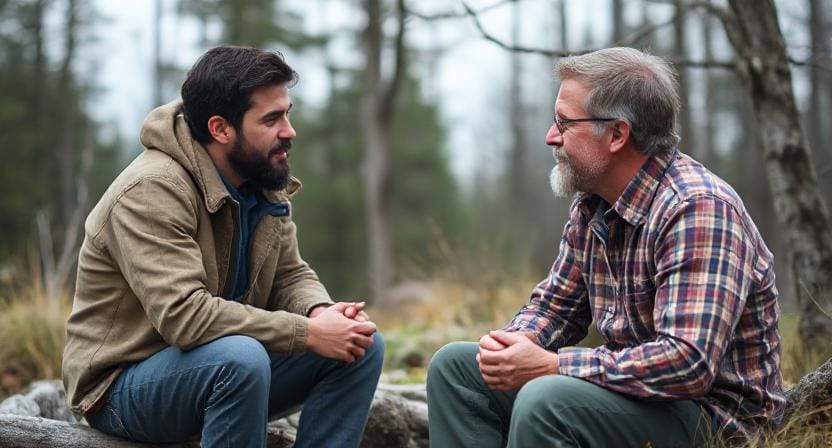
Occasionally we need aid from a professional to deal with our feelings, just like we require GPS when we're lost in the woods. Therapists that specialize in grief counseling can provide you specialized tools to help you deal with loss after a disaster.
Don't be afraid to use these resources; they're there for a purpose! In fact, talking about my problems made all the difference on one really stressful camping trip when everything went wrong (think broken tents and raccoon invasions), even if I had to do it over burnt hot dogs.
Find Meaning By Doing Things
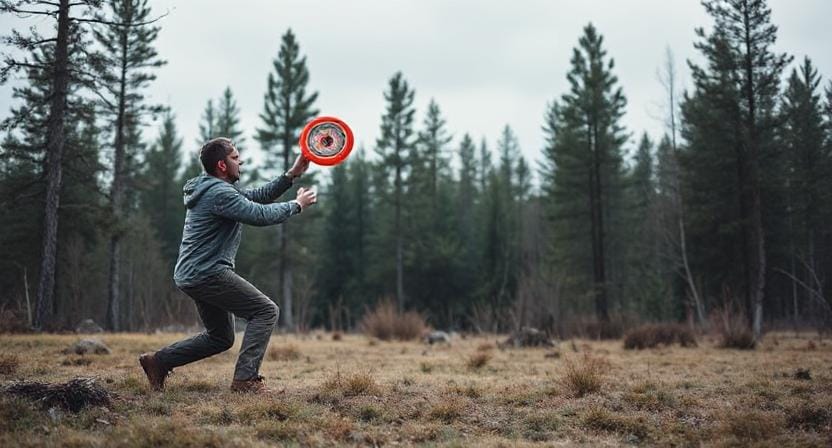
Here's something interesting: doing something can often assist with the emotions of powerlessness that come with grieving. After disasters, there are often chances to volunteer, whether it's helping to rebuild homes or giving out supplies. It feels wonderful to know that you're making a difference in the middle of all the commotion.
In the end, working with other people toward the same goals builds friendships and gives you a sense of purpose during hard times. I noticed that even tiny things may make people happy when we helped clean up our local park after it flooded last spring. For example, finding an old frisbee buried in the muck made me happy.
Celebrate the Past
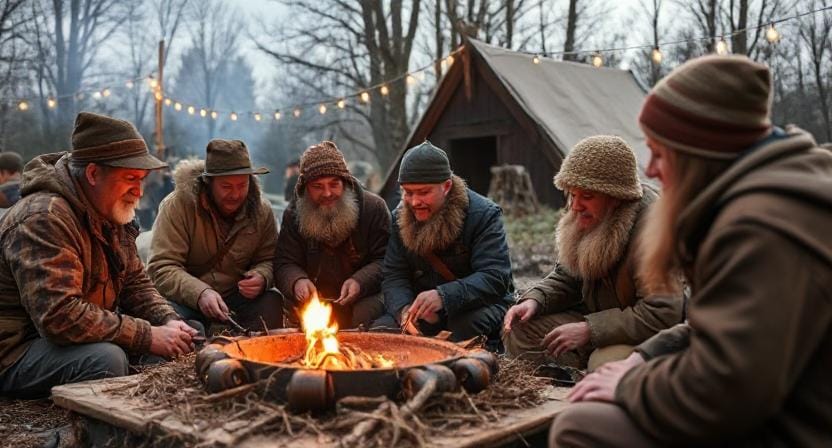
Now, let's speak about having fun! It may seem strange to celebrate memories when you're grieving (like doing yoga on a rollercoaster), but it keeps loved ones alive in our hearts and reminds us why we love those times so dearly.
Make memory books with pictures from happier times spent outside, or have parties where everyone tells their favorite memories about what you've lost together. Nights full of laughter and tears are always the best!
For example, I've seen families construct memorial gardens with flowers for each loved one. Every year, the flowers blossom magnificently as living memorials.
Grief is a mess. It doesn't come in nice little boxes. Some days you may feel OK, but other days it hits you hard. That's normal. There are a lot of ups and downs, like on a roller coaster. You're not the only one going through this.
Everything seems fine. Let those feelings out. Talk to someone who understands. Sharing makes it easier. Your mom or best friend could be able to help.
Making small rituals might also be quite helpful. Put a candle in front of someone you miss. Or put a flower in their memory. It's like hugging the past.
Reach out if you're having trouble. It's okay to ask for aid. It can be helpful to find a group or a counselor. They'll get it when things are shaky.
It's important to take steps to feel better. Do your best to move on. A walk in the park or drawing can make you feel better. Remember the good times that make you smile. Do you remember the amusing times? Those times are important.
And don't forget to laugh. It's like the sun coming out on a dreary day. It's true that watching a hilarious show or telling a pal a joke can make you feel better.
It's good to take your time on your path. Take the good with the bad. You can do this. You'll find your path with love, support, and a little bit of fun.
Frequently Asked Questions
Is it normal to feel a range of emotions after disaster loss?
Yes. Grief is not linear and may include sadness, anger, numbness, and confusion as your mind processes rapid change.
Why should routines be maintained after traumatic loss?
Daily structure creates predictability, which helps stabilize sleep, eating patterns, and emotional regulation during turmoil.
Where can survivors find emotional support?
Peer groups, counselors, community circles, and shared post-disaster spaces help reduce isolation and normalize healing.
How does self-care help with grief?
Sleep, movement, hydration, and nourishing food support the brain’s stress systems, improving coping and resilience.
Are memorial rituals helpful?
Yes. Creating memorials or small honoring routines preserves meaning, validates loss, and supports continued connection.
Is it ok to ask for professional help?
Absolutely. Licensed mental health providers offer evidence-based tools and structured guidance when symptoms overwhelm daily life.
How long does grief last?
There is no universal timeline. Recovery is gradual and influenced by personal history, support, and coping strategies.
Suggested Resources:
The Grief Recovery Method
https://www.griefrecoverymethod.com
National Alliance for Grieving Children
https://childrengrieve.org
Crisis Text Line
https://www.crisistextline.org

Kevin Collier is a seasoned survivalist and expert in prepping and homesteading, contributing to WiseSurvive.com. With a deep-rooted passion for self-sufficiency and outdoor survival skills, Kevin shares practical advice, strategies, and resources to help individuals prepare for any challenge. His informative articles cover a range of topics, from essential survival techniques to sustainable living practices, empowering readers to thrive in any situation. Whether you're a novice or a seasoned prepper, Kevin's insights will inspire you to take charge of your readiness and build resilience for the future.

